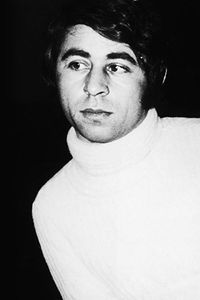Francis Albert Lai, a celebrated French composer of international acclaim, entered the world on April 26, 1932, in the picturesque city of Nice, France, where his parents, humble market gardeners of Italian descent, had made their home. From the tender age of childhood, Lai's fascination with the enchanting realm of music was evident, and he soon began to indulge his passion by playing in local regional orchestras, where he honed his skills and refined his craft.
As he grew older, Lai's musical journey took him to the vibrant city of Marseilles, where he was introduced to the captivating world of jazz, a genre that would significantly influence his future compositions. It was in Marseilles that he crossed paths with Claude Goaty, a charismatic singer who had captured the hearts of many in the 1950s, and the two formed a lasting bond, fostering a creative partnership that would yield fruitful results in the years to come.
Lai's journey as a young adult took an exciting turn when he bid farewell to his childhood home and embarked on a new adventure, accompanied by his friend Goaty, to the City of Light, Paris. It was in this enchanting metropolis that Lai became immersed in the thriving music scene of Montmartre, an area renowned for its artistic flair and cultural richness.
The Taverne d'Attilio, a cozy establishment that served as a gathering place for the city's talented musicians, held a special significance for Lai. It was here, surrounded by the sounds of laughter and music, that he collaborated with the gifted Bernard Dimey, a chance encounter that would blossom into a fruitful songwriting partnership.
As their creative bond strengthened, Lai and Dimey went on to compose over a hundred songs, a testament to their dedication and artistic synergy. This remarkable partnership not only yielded a wealth of beautiful music but also left an indelible mark on the world of music, inspiring generations of musicians to come.
Noted French composer Claude Lai embarked on an illustrious career after a fleeting yet formative period with the esteemed Michel Magne's orchestra. This initial foray into the world of music served as a springboard for Lai's subsequent appointment as an accompanist for the legendary Édith Piaf, whose iconic voice he had the privilege of harmonizing with.
In 1965, Lai's trajectory took a dramatic turn when he crossed paths with acclaimed filmmaker Claude Lelouch, who entrusted him with the task of crafting the score for his forthcoming cinematic masterpiece, A Man and a Woman. The film's release in 1966 sent shockwaves of acclaim throughout the international film community, as it went on to garner numerous Academy Awards. Lai's contributions to the film's soundtrack did not go unnoticed, as he received a coveted Golden Globe Award nomination for Best Original Score, a testament to his exceptional talent and dedication to his craft.
As a result of his initial success, Lai's career trajectory was marked by an increasing number of opportunities in the film industry, both within France and beyond its borders. This surge in demand led to a continued collaboration with the renowned director Lelouch, with whom Lai worked on scores for a string of notable films, including Vivre pour vivre, released in 1967, Un homme qui me plaît, which premiered in 1969, Le voyou, a 1970 release, and La bonne année, which hit screens in 1973.
In addition to his work with Lelouch, Lai's talents were in high demand, leading to collaborations with artists and filmmakers in both Great Britain and the United States. His compositional skills were sought after by a diverse range of clients, resulting in a diverse portfolio that spanned multiple genres and mediums.
Lai's profound admiration for the renowned French singer Mireille Mathieu is exemplified through his extensive array of compositions and collaborative recordings with her.
In the same calendar year, the renowned composer Lai achieved unparalleled success, earning the prestigious Academy Award for Best Music, Original Score, as well as the esteemed Golden Globe Award for Best Original Score, for his outstanding work on the film Love Story.
The accompanying soundtrack album catapulted to an impressive No. 2 position on the Billboard album charts, while the film's iconic theme, "Where Do I Begin," became a chart-topping hit single, boasting poignant lyrics penned by the acclaimed Carl Sigman, and expertly performed by the legendary Andy Williams.
Notably, Lai himself, the illustrious Henry Mancini, and the talented Shirley Bassey also successfully recorded this timeless classic, further cementing its place in the annals of music history.
Francis Lai's iconic "Love Story" theme resurfaced in the 1978 sequel Oliver's Story, albeit with Lee Holdridge taking the reins for the primary score.















